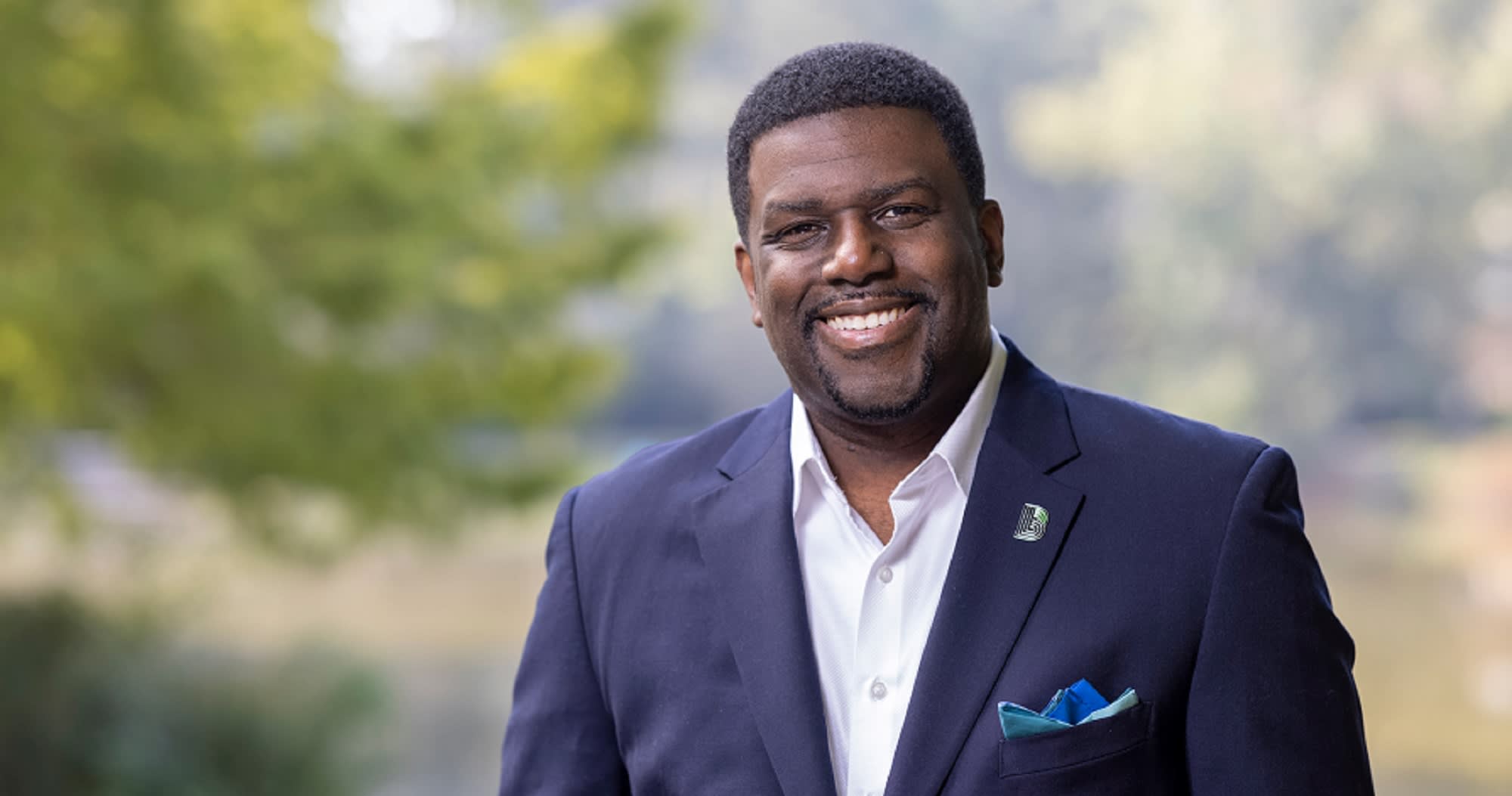
This story is part of the Behind the Desk series, where CNBC Make It gets personal with successful business executives to find out everything from how they got to where they are to what makes them get out of bed in the morning to their daily routines.
When Artis Stevens was named the first Black CEO of youth mentoring nonprofit Big Brothers Big Sisters of America in November 2020, one of the first people he thought of was Ahmaud Arbery.
“The street he walked on and was murdered on, I walked on as a kid,” Stevens, 48, tells CNBC Make It.
Stevens grew up in the same town of Brunswick, Georgia, as Arbery, an unarmed Black man who was gunned down at age 25 in Brunswick, by three white men on Feb. 23, 2020. On Tuesday, Arbery’s killers were found guilty of federal hate crimes, three months after each being convicted of murder and sentenced to life in prison.
Arbery and Stevens were born more than two decades apart from each other, but Stevens says Arbery’s story made him question if he was doing enough for his community. He’d already built a career out of such work: Before taking the reins of the 116-year-old nonprofit, Stevens was a longtime youth development executive at organizations like Boys & Girls Clubs of America, the National 4-H Council and the Atlanta Public Housing Agency.
As a child, Stevens’ opportunities could have been limited. He was the youngest of eight children in a family without “a lot of means.” But being viewed as “gifted” helped him find mentors and a quality education, he says.
Today, his goal is to expand those opportunities to as many children as possible. Stevens leads a network of more than 3,500 staffers working at 230 Big Brother Big Sister agencies across the country. He says more than 30,000 kids are currently on the waiting list to get into one of his organization’s programs.
And “most of them are boys of color,” Stevens says.
Here, Stevens talks about his journey to running a major national nonprofit, handling intense personal loss during the Covid-19 pandemic and his best advice for the next generation.
On growing up without ‘a lot of means’ in the South: ‘Everyone has their own ministry in this world’
There were eight of us. I was the youngest. We didn’t have a lot of means, but my parents always told me that “we were rich in relationships.”
My mom was the anchor of not only our family, but our community. My dad was a preacher. My granddad was a preacher. When I was a kid, everybody was saying I was going to be a preacher like my dad. I went to my dad, and I said, “Hey, everybody says I’m going to be a preacher like you. Is that true?”
My dad said something that stuck with me for life: “Everyone has their ministry in this world. You have to find yours.”
I never saw a community of educated Black men until I pledged this fraternity called Alpha Phi Alpha [at the University of Georgia]. It opened up my world and taught me a lot about brotherhood, service and commitment.
After college, I was going to go to law school. But when I went back home to my hometown, I did an interview, and the interviewer took me to this playground in the public housing community. He asked me what I knew about the playground. I smiled and said, “This is the playground that I played in as a kid.”
And he was like, “You can always go to law school, but you can’t always come home and transform the community that you grew up in.”
That was one of my changing points in life, where I thought it was going in one direction, but it was headed in another direction.
On handling loss amid the devastating pandemic: ‘Even in a time of grief, you find the light’
My first week on my job, my dad passed away suddenly. Then, six months to the day that my dad died, my brother died from Covid.
It was hard, and it’s still hard.
It’s important for me to share that. Everything they represented in my life is what I represent now, not only for my family but the broader community that I’m in.
To help me manage and handle my job responsibilities, I [relied heavily] on my faith. My family and I also have a family motto. Every morning we get up, we say the same thing to each other: “Be smart. Be strong. Be kind. Be you.”
That’s the way we all leave for the day. It’s all about making the best decisions in our lives each day and treating people with compassion. That is what anchors me.
The last thing that helps me is that I laugh. I grew up in a family of laughter, joy and comedy. This may sound crazy, but one of the places I laughed the most was at my brother’s funeral.
He was always laughing, and everyone knew that it would not have been [fitting] if it wasn’t about laughter. Even in the time of grief, you find the light that allows you to continue to walk your journey.




